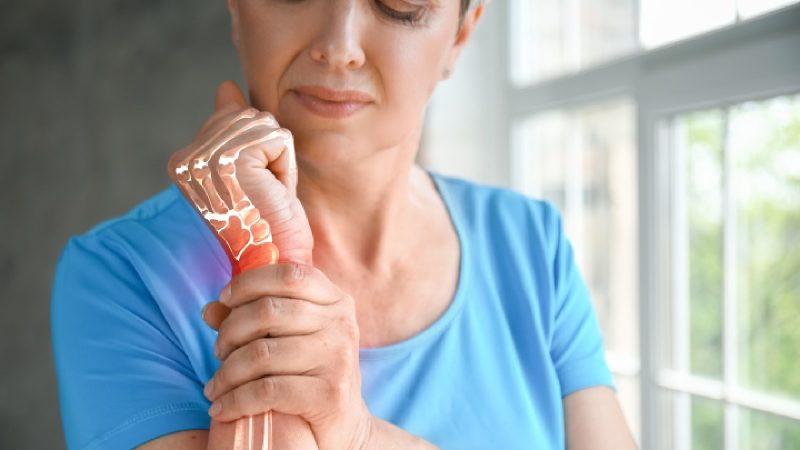Introduction
Osteoporosis is a medical condition that causes bones to become weak and brittle due to a decrease in bone mass and density. It can affect both men and women, but women are at a higher risk, especially during menopause when hormone changes can affect bone density. On World Osteoporosis Day, let’s explore the link between medical conditions and osteoporosis.
What is Osteoporosis?
Osteoporosis is a condition in which bones become weak and fragile. As we age, our bones naturally lose density, but in osteoporosis, this loss is accelerated, increasing the risk of fractures, especially in the spine, hip, and wrist.
Medical Conditions That Increase Risk of Osteoporosis
Several medical conditions or diseases can increase the risk of osteoporosis:
Rheumatoid arthritis
Rheumatoid arthritis, an autoimmune disorder that targets joints, can lead to bone loss due to chronic inflammation, increasing the risk of osteoporosis.
Hyperthyroidism
Hyperthyroidism occurs when the thyroid gland produces an excessive amount of thyroid hormone. This can accelerate bone loss, making the bones weaker and more prone to fractures.
Celiac disease
Celiac disease is an autoimmune disorder that damages the small intestine when gluten is consumed. This can interfere with the absorption of calcium and vitamin D, essential nutrients for bone health.
Chronic kidney disease
Kidneys play a vital role in balancing calcium and phosphate in the body. When kidney function is compromised, it can lead to imbalances that affect bone density.
Eating disorders
Eating disorders like bulimia or anorexia nervosa can result in malnutrition, which negatively impacts bone health. Lack of essential nutrients can lead to decreased bone density and increased risk of osteoporosis.
Prevention of Osteoporosis
Preventing osteoporosis involves a combination of lifestyle choices and medical interventions:
Diet
A balanced diet rich in calcium and vitamin D is crucial for strong bones. Foods such as dairy products, green leafy vegetables, and fortified foods are good sources of calcium. Sunlight exposure and adding fatty fish to the diet can provide vitamin D.
Exercise
Weight-bearing exercises like walking, jogging, and resistance training help maintain bone density and strength.
Avoid smoking and excessive alcohol
Both smoking and excessive alcohol consumption decrease bone density, increasing the risk of osteoporosis.
Limit caffeine and sodium
Excessive caffeine and sodium can interfere with calcium absorption. It’s important to consume them in moderation.
Bone density testing
Bone density tests can detect early signs of bone loss, allowing for timely intervention.
Medications
Doctors may prescribe medicines to prevent or treat osteoporosis. These medications can slow bone loss or increase bone formation.
If you believe you have a high risk of developing osteoporosis, consult with a doctor for proper evaluation and guidance.









